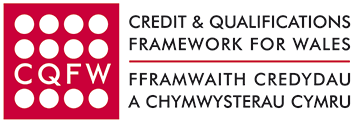| 1. |
Be able to support individuals to make choices about food and drink. |
|
| 1.1 | Establish with an individual the food and drink they wish to consume. | | 1.2 | Encourage the individual to select suitable options for food and drink. | | 1.3 | Describe ways to resolve any difficulties or dilemmas about the choice of food and drink. | | 1.4 | Describe how and when to seek additional guidance about an individual’s choice of food and drink. |
|
| 2. |
Be able to prepare to provide support for eating and drinking. |
|
| 2.1 | Identify the level and type of support an individual requires when eating and drinking. | | 2.2 | Demonstrate effective hand-washing and use of protective clothing when handling food and drink. | | 2.3 | Support the individual to prepare to eat and drink, in a way that meets their personal needs and preferences. | | 2.4 | Provide suitable utensils to assist the individual to eat and drink. |
|
| 3. |
Be able to provide support for eating and drinking. |
|
| 3.1 | Describe factors that help promote an individual’s dignity, comfort and enjoyment while eating and drinking. | | 3.2 | Support the individual to consume manageable amounts of food and drink at their own pace. | | 3.3 | Provide encouragement to the individual to eat and drink. | | 3.4 | Support the individual to clean themselves if food or drink is spilt. | | 3.5 | Adapt support in response to an individual’s feedback or observed reactions while eating and drinking. |
|
| 4. |
Be able to clear away after food and drink. |
|
| 4.1 | Explain why it is important to be sure that an individual has chosen to finish eating and drinking before clearing away. | | 4.2 | Confirm that the individual has finished eating and drinking. | | 4.3 | Clear away used crockery and utensils in a way that promotes active participation. | | 4.4 | Support the individual to make themselves clean and tidy after eating or drinking. |
|
| 5. |
Be able to monitor eating and drinking and the support provided. |
|
| 5.1 | Explain the importance of monitoring the food and drink an individual consumes and any difficulties they encounter. | | 5.2 | Carry out and record agreed monitoring processes. | | 5.3 | Report on the support provided for eating and drinking in accordance with agreed ways of working. |
|
